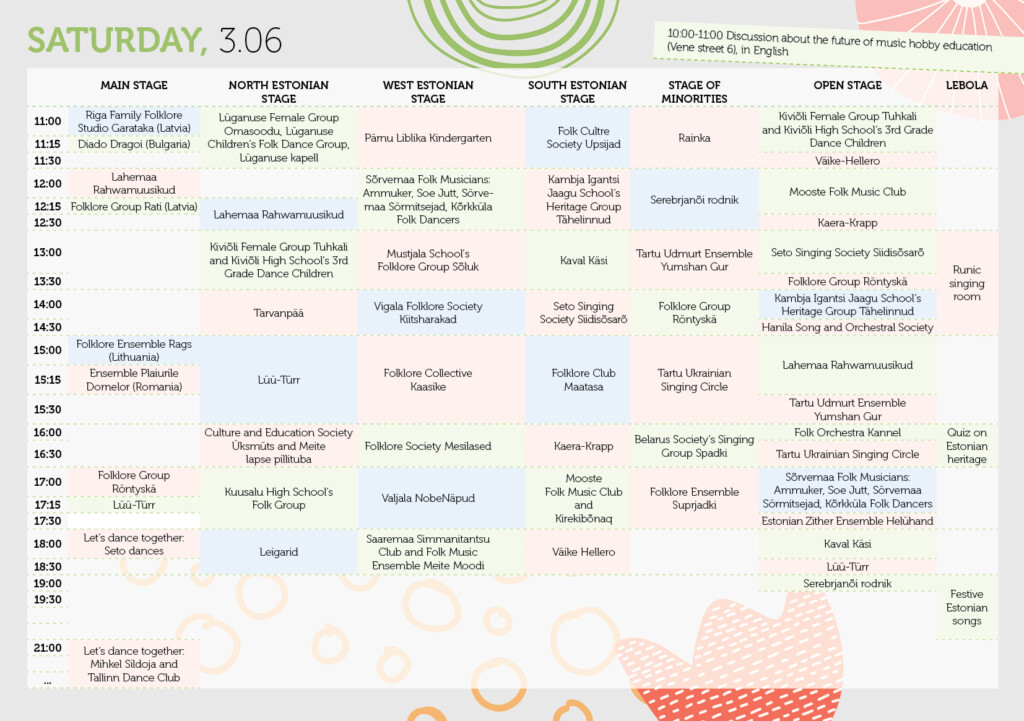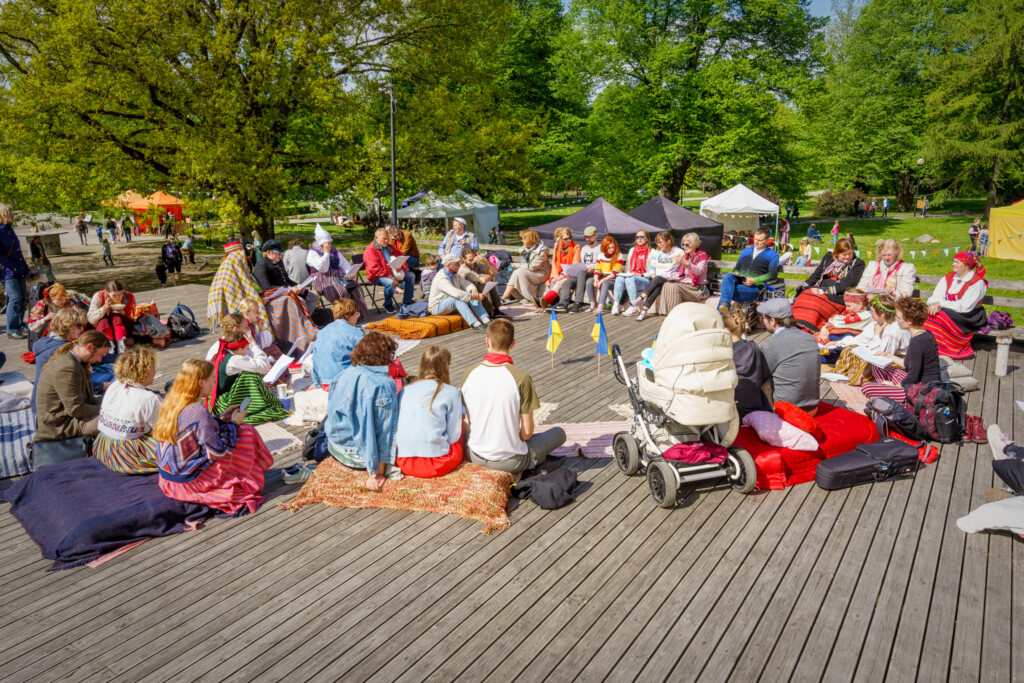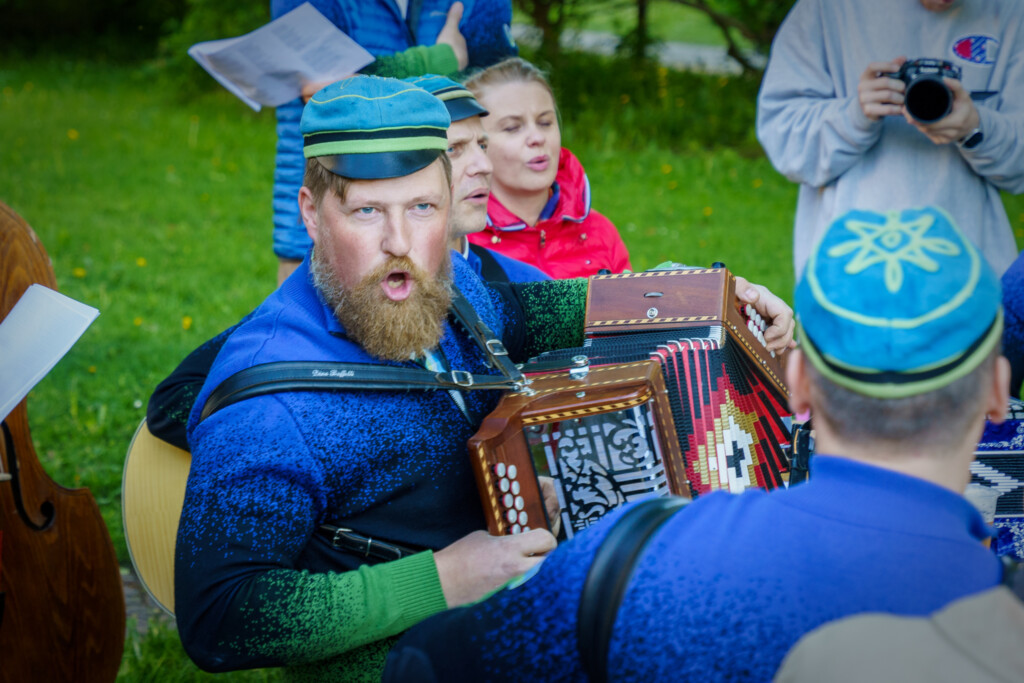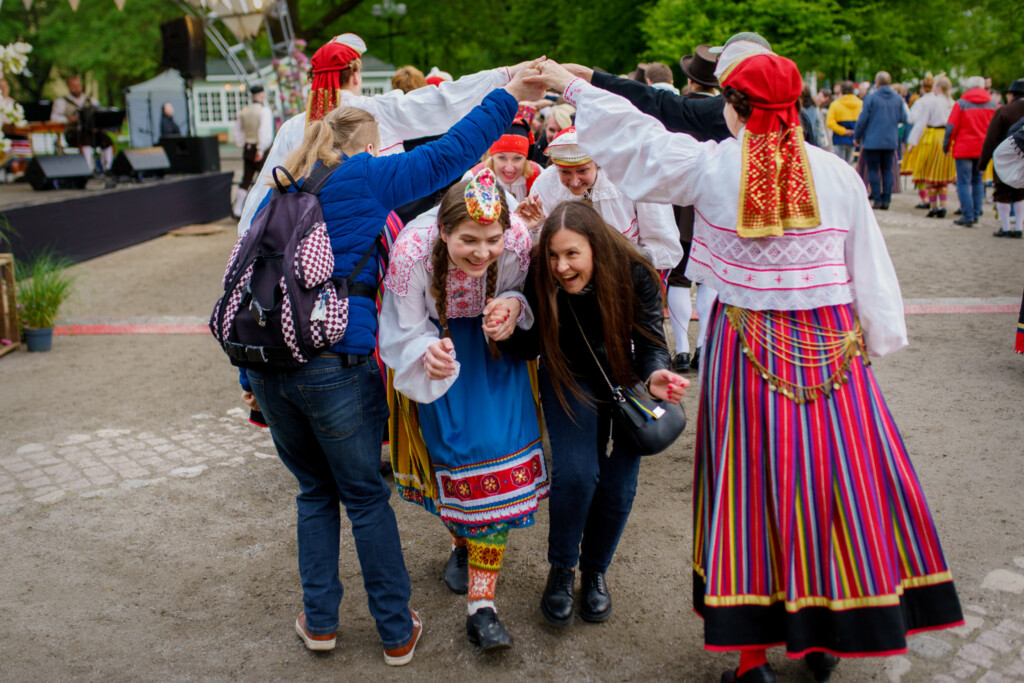SATURDAY, JUNE 3
On the main stage of the heritage village and on the local stages, guests can learn about the local traditions of different regions of Estonia, enjoy their own and others’ performances, and let themselves be carried away by heritage. There will be workshops for every taste! There will also be artisans and representatives of cultural spaces offering crafting opportunities.

Discussion and exchange of ideas among music teachers from the Baltic countries regarding the best practices in teaching music. What is the motivation of an adult learner to participate in the study of traditional music, and what methods are used to preserve the joy of playing instruments in different countries? The discussion and debate will be led by Tarmo Noormaa, musician, teacher, organizer of traditional music events.
Is there a runic song in your heart that is special or important for you? It may be the first song you consciously heard or sang along to that pulled you to discover the world of runic songs. Perhaps, singing this song alone or with someone, you have felt that singing does have the power to turn the land into the sea and the sea sand into birds. Perhaps, this song is associated with a beloved person or place, perhaps it tells a story that seems to be talking about you or reminds you of a vivid moment etched in your memory. Perhaps there is some mystery or an unexpectedly exciting image in this song? Come to the runic singing room to lead this song or just sing along, to enjoy other people’s songs and stories! Runo singing room is led by Janika Oras.

Foto: Rene Jakobson
For Estonians, quizzes are an extremely popular educational and entertaining way of spending time. Most likely, it is only a matter of time when it will be included in the list of the intangible cultural heritage of Estonia. Baltica quiz will be held for the first time and will be conducted by sports journalist Tarmo Tiisler and folklorist-cultural historian Marju Kõivupuu – well-known participants in quizzes on the radio show “Mnemoturniir” on Sunday mornings. We are inviting 3-member teams from among all festival visitors to play. Come and test your knowledge of the history of the Folklore Festival Baltica and traditional culture in general! The memory game will be held in Estonian. Pre-registration for the vacant places up to an hour before the start of the memory game at the information point.

We will dance traditional Seto dances together to the accompaniment of garmoshka music. Everyone is welcome to dance – those who already know how, will feel the joy of dancing; those who don’t know how yet, will learn it soon. After the 1st Seto dance festival in 2018, dancing has occupied an important place in Seto traditional culture. Piret Torm-Kriis is in charge.
At the party table brimming with food, there is always room for a few songs between aspic, salad, coffee, cake, cognac, wine and other goods. The song fits especially well on the party table, which is less laden with food, but rather on the meager side. The song also fits on a table, which is not so festive, but rather on the sad side – the song is suitable as a comforter as well as a lifter of the mood. After all, you don’t come to the party table to twist your tongue, but to sing about what is currently burdening your soul, mind and tongue – without judgment, without applause – as well or as badly as you know how and what comes out, what pops into your head and gets unleashed. There may be a set program at the party table, but there is always room for spontaneity – unexpected events happen, things can get awkward and embarrassing, but mostly, the joy will reign, because the party song is playing right here and right now. Always, uniquely. Jaan Sarv and the men of the korp! Rotalia will keep an eye and an ear on the party songs.

Foto: Rene Jakobson
The Dance Club is essentially a village party that has moved to the city, where instead of members of the village community, city people who like folk dance and music meet. That is why, in the Dance Club, they dance 19th-20th century village party dances, especially Estonian dances, and always to the music of a live musician. Some dances from neighboring countries and further afield happen to be in the mix. Teaching of the dances does not happen often, so we recommend keeping an eye on those who dance well and learning from them.
This time, the young tradition conscious Mihkel Sildoja, who won the special prize of the Estonian Folklore Council at the contest Vabariigi Pillimees 2022, will play the accordion in the dance club. In addition to him, the Tallinn Dance Club Musicians will accompany the dances.

Foto: Rene Jakobson
